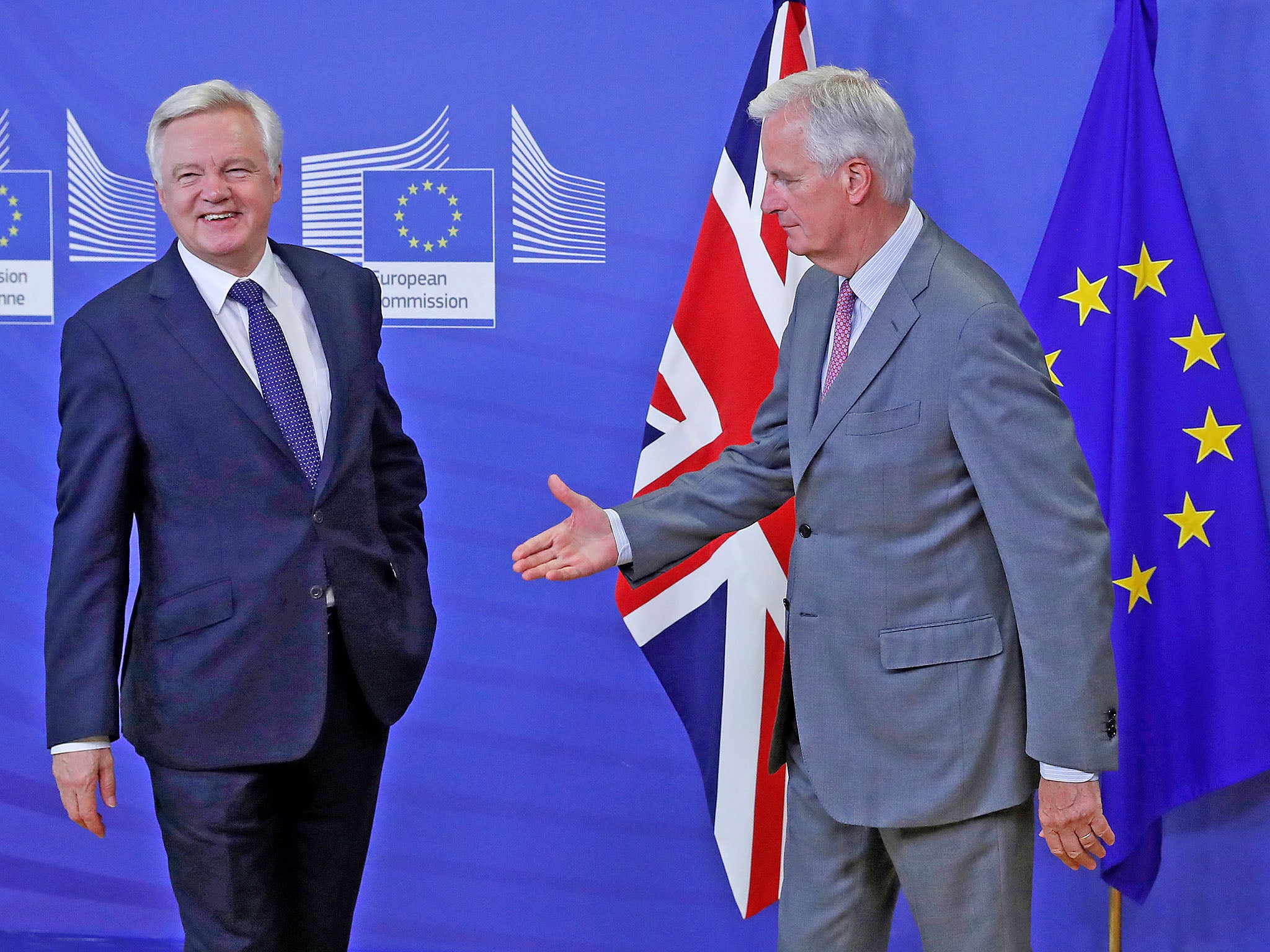The Brexit talks have been left stuck in the mud over the summer, and this week the British and EU negotiation teams will do their best to restart them.
It’s still August in Brussels and the European institutions are physically deserted, with most eurocrats off on their customary substantial summer breaks. The whole city quite literally closes down: many bars, restaurants, and even some of the city’s famous friteries shutter for a month.
But as life slowly returns to the Berlaymont, the Justus Lipsius building, and the other landmarks of Europe’s capital district, David Davis and his negotiating team will come striding back into town under the mantra that “both sides must be flexible”.
European Commission president Jean Claude Juncker has got a head-start, and has already been back in the Berlaymont over the last week. He is said by officials to be busy working on his state of the union address – his second since the EU referendum. In his first, he did not directly mention Brexit, but warned that Europe’s enemies would “like us to fragment”.
Michel Barnier, the European Commission’s chief negotiator, has been less silent. He was keen to stress this week that the EU’s positions on Brexit had been “clear and transparent since day one” – apparently contrasting this with the British position.
On Monday, as if to emphasise the work the Commission had already done fleshing out it positions, he sent a flurry of tweets linking to nine separate position papers the EU had produced, detailing its views on subjects ranging from dispute settlement mechanisms to citizens’ rights.
This idea, that the EU has clear positions, is clearly an agreed line for the EU side to take – the fact the Commission’s position has been set and public for some time been echoed by the skeleton crew of EU officials and spokespeople minding the capital over the summer, too.
Officials are clearly tiring of what they call “intra-UK debate” on what the British position actually is. The famous photograph of David Davis without any notes during the last round of talks may have been just a photograph; but it touched a nerve for a reason.
Britain, meanwhile, has been playing catch-up. In the quiet days of August the Department for Exiting the European Union has been firing off its own position papers – some more enlightening than others.
These efforts have not impressed EU officials, with one senior EU official saying that the paper on the Northern Ireland border in particular contained “magical thinking” about a border that wasn’t really a border.
The Commission says it wants to make progress on the rights of EU and British citizens living out of their home countries, the settling of the financial accounts and the Irish border. Other EU institutions, like the Europe Parliament, confirm they have similar asks.
Irish Prime Minister Leo Varadkar summed up the EU mood well when he said the bloc was “confused and puzzled” at what exactly Britain wanted.
Brexit: the deciders
Show all 8But having published their position papers, the British see it as the EU’s turn to give a little. “This round of negotiations will focus on thrashing out the technical detail on important matters related to us leaving the EU, and will act as a stepping stone to more substantial talks in September,” a UK government source said.
“The UK has been working diligently to inform the negotiations in the past weeks, and has published papers making clear our position on a wide range of issues from how we protect the safe flow of personal data, to the circumstances around Ireland and Northern Ireland.
“Now, both sides must be flexible and willing to compromise when it comes to solving areas where we disagree. As the EU itself has said, the clock is ticking so neither side should drag its feet.”
For now, both sides still see the ball as being in each-others’ court, a situation which doesn’t bode well for any progress being made this week.
Subscribe to Independent Premium to bookmark this article
Want to bookmark your favourite articles and stories to read or reference later? Start your Independent Premium subscription today.


Join our commenting forum
Join thought-provoking conversations, follow other Independent readers and see their replies